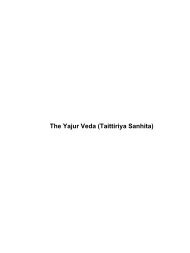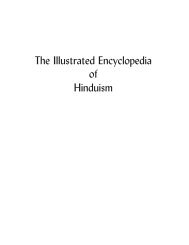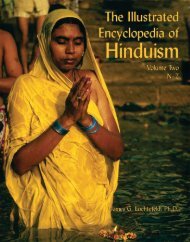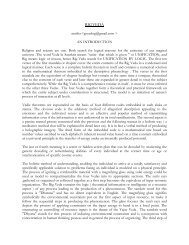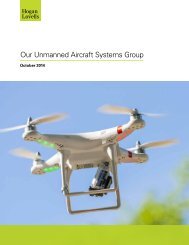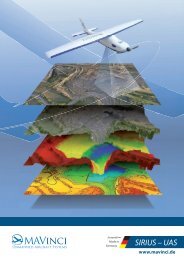- Page 2:
ENCYCLOPEDIA OF BUDDHISM
- Page 6:
ENCYCLOPEDIA OF BUDDHISM Volume One
- Page 10:
CONTENTS Preface. .................
- Page 14:
PREFACE Buddhism is one of the thre
- Page 18:
P REFACE for rendering Asian langua
- Page 22:
LIST OF ARTICLES Abhidharma Collett
- Page 26:
L IST OF A RTICLES Devadatta Max De
- Page 30:
L IST OF A RTICLES Laos Justin McDa
- Page 34:
L IST OF A RTICLES Sautrantika Coll
- Page 38:
LIST OF CONTRIBUTORS Ryuichi Abé C
- Page 42:
L IST OF C ONTRIBUTORS Alexander Ga
- Page 46:
L IST OF C ONTRIBUTORS Jan Nattier
- Page 50:
L IST OF C ONTRIBUTORS Jonathan S.
- Page 54:
SYNOPTIC OUTLINE OF ENTRIES This ou
- Page 58:
S YNOPTIC O UTLINE OF E NTRIES Juef
- Page 62:
S YNOPTIC O UTLINE OF E NTRIES Divi
- Page 66:
S YNOPTIC O UTLINE OF E NTRIES Cent
- Page 70:
MAPS THE DIFFUSION OF BUDDHISM Majo
- Page 74:
E NCYCLOPEDIA OF B UDDHISM xxxvii M
- Page 78:
E NCYCLOPEDIA OF B UDDHISM xxxix Ma
- Page 82:
A ABHIDHARMA In the centuries after
- Page 86:
A BHIDHARMA 5. Yamaka (Pairs); 6. P
- Page 90:
A BHIDHARMA invoked only as a suppl
- Page 94:
A BHIDHARMAKOŚABHA S YA tic techni
- Page 98:
A BORTION the focus of numerous ARH
- Page 102:
A GAMA/NIKA YA schools whose litera
- Page 106:
A LCHI beings in action, the Ajanta
- Page 110:
A MULETS AND T ALISMANS generally l
- Page 114:
A NANDA T EMPLE chose A nanda to se
- Page 118:
A NA TMAN/A TMAN (NO -SELF/SELF) ob
- Page 122:
A NCESTORS miniature furniture and
- Page 126:
A NITYA ( IMPERMANENCE) transfer, g
- Page 130:
A POCRYPHA eled after canonical nar
- Page 134:
A POCRYPHA ously be inherently enli
- Page 138:
A RHAT nonreturning (anagami marga)
- Page 142:
A RYADEVA or as distinctly exotic,
- Page 146:
A SCETIC P RACTICES aya 4:88) state
- Page 150:
A TISHA Bibliography Barua, B. M. A
- Page 154:
A VADA NA ters. The Avadanaśataka
- Page 158:
A YUTTHAYA (function) in analyzing
- Page 162:
B BA MIYA N Located 240 miles north
- Page 166:
B IANXIANG (TRANSFORMATION T ABLEAU
- Page 170:
B IOGRAPHY BIOGRAPHY Many religious
- Page 174:
B KA’ BRGYUD (KAGYU) the Buddha
- Page 178:
B ODH G AYA 2. The Stag lung Bka’
- Page 182:
B ODHI (AWAKENING) scholarship to r
- Page 186:
B ODHICARYA VATA RA awakening (dunw
- Page 190:
B ODHICITTA (THOUGHT OF A WAKENING)
- Page 194:
B ODHIDHARMA BODHIDHARMA Within the
- Page 198:
B ODHISATTVA( S ) 10. caramabhavika
- Page 202:
B ODHISATTVA I MAGES Early represen
- Page 206:
B ODY, PERSPECTIVES ON THE serves t
- Page 210:
B ODY, PERSPECTIVES ON THE body has
- Page 214:
B ON lde btsan (pronounced Trisong
- Page 218:
B SAM YAS D EBATE the first seven T
- Page 222:
B UDDHA( S ) say for certain is tha
- Page 226:
B UDDHA( S ) have originated at the
- Page 230:
B UDDHAGHOSA BUDDHACARITA The Buddh
- Page 234:
B UDDHAHOOD AND B UDDHA B ODIES rep
- Page 238:
B UDDHA I MAGES terms such as sahaj
- Page 242:
B UDDHA I MAGES the Buddha as a hum
- Page 246:
B UDDHA, LIFE OF THE MU LASARVA STI
- Page 250:
B UDDHA, LIFE OF THE and was near d
- Page 254:
B UDDHA, LIFE OF THE by the next bu
- Page 258:
B UDDHA, LIFE OF THE, IN A RT A rep
- Page 262:
B UDDHA, LIFE OF THE, IN A RT Buddh
- Page 266:
B UDDHAVACANA (WORD OF THE B UDDHA)
- Page 270:
B UDDHIST S TUDIES temporary Buddhi
- Page 274:
B UDDHIST S TUDIES both at indigeno
- Page 278:
B UDDHIST S TUDIES The CHAN SCHOOL
- Page 282:
B URMESE, BUDDHIST L ITERATURE IN L
- Page 286:
B U STON (BU TÖN) Lu se lu phrac v
- Page 290:
C CAMBODIA Cambodia in the twenty-f
- Page 294:
C AMBODIA A view of Angkor Wat, the
- Page 298:
C AMBODIA traditionalists within th
- Page 302:
C ANON CANDRAKIRTI Candrakrti (ca.
- Page 306:
C ANON tirety is that of the Therav
- Page 310:
C ANON A Tibetan book, printed from
- Page 314:
C AVE S ANCTUARIES sanbao ji. Thus,
- Page 318:
C AVE S ANCTUARIES The late-seventh
- Page 322:
C ENTRAL A SIA Kaniska) to Buddhism
- Page 326:
C ENTRAL A SIA, BUDDHIST A RT IN fo
- Page 330:
C HAN A RT paintings or in sculptur
- Page 334:
C HAN A RT torial counterpart to th
- Page 338:
C HAN A RT activity such as archery
- Page 342:
C HAN S CHOOL all-at-once enlighten
- Page 346:
C HAN S CHOOL Concentration on wu w
- Page 350:
C HAN S CHOOL subordinate component
- Page 354:
C HANTING AND L ITURGY Faure, Berna
- Page 358:
C HINA Bells, gongs, drums, horns,
- Page 362:
C HINA teachings were drawn to Budd
- Page 366:
C HINA ten display a tendency to re
- Page 370:
C HINA, BUDDHIST A RT IN Daoism wer
- Page 374:
C HINA, BUDDHIST A RT IN Xiangyang
- Page 378:
C HINA, BUDDHIST A RT IN stone imag
- Page 382:
C HINA, BUDDHIST A RT IN appeared d
- Page 386:
C HINA, BUDDHIST A RT IN Guanyin fr
- Page 390:
C HINESE, BUDDHIST I NFLUENCES ON V
- Page 394:
C HINUL mately be traced back to th
- Page 398:
C HRISTIANITY AND B UDDHISM influen
- Page 402:
C LERICAL M ARRIAGE IN J APAN out o
- Page 406:
C OLONIALISM AND B UDDHISM rently l
- Page 410:
C OLONIALISM AND B UDDHISM Japan (S
- Page 414:
C OMMENTARIAL L ITERATURE chong’s
- Page 418:
C OMMUNISM AND B UDDHISM tion, the
- Page 422:
C OMMUNISM AND B UDDHISM A Chinese
- Page 426:
C ONFUCIANISM AND B UDDHISM poetry
- Page 430:
C ONSCIOUSNESS, THEORIES OF Bibliog
- Page 434:
C ONSCIOUSNESS, THEORIES OF persona
- Page 438:
C ONSECRATION how disappointed he w
- Page 442:
C ONSECRATION enables a representat
- Page 446:
C OSMOLOGY Zürcher, Erik. The Budd
- Page 450:
C OSMOLOGY Cycles of time The tempo
- Page 454:
C OUNCILS, BUDDHIST But this raises
- Page 458:
C RITICAL B UDDHISM (HIHAN B UKKYO)
- Page 462:
D DAIMOKU The term daimoku, literal
- Page 466:
D ALAI L AMA Mongolian translation
- Page 470:
D ALAI L AMA Lama was given the nam
- Page 474:
D AOISM AND B UDDHISM DAO’AN Dao
- Page 478:
D AOISM AND B UDDHISM Several hagio
- Page 482:
D AOSHENG met the mysterious Man of
- Page 486:
D EATH as popular Chan adages, are
- Page 490:
D EATH to mindfulness of the three
- Page 494:
D EATH The funeral and cremation of
- Page 498:
D EATH The funeral procession of a
- Page 502:
D ECLINE OF THE D HARMA ence of NUN
- Page 506:
D ESIRE po constitutes a new dispen
- Page 510:
D GE LUGS (GELUK) Mahaprajñaparami
- Page 514:
D HARMA AND D HARMAS been added ove
- Page 518:
D HARMA AND D HARMAS A golden dharm
- Page 522: D HARMA AND D HARMAS 1. Form or mat
- Page 526: D HARMA AND D HARMAS 6. Attainment
- Page 530: D HARMARAKS A dha. The fourfold dha
- Page 534: D IAMOND S U TRA Dhyana is also def
- Page 538: D IET obtained on the begging round
- Page 542: D ISCIPLES OF THE B UDDHA restrict
- Page 546: D IVINITIES bought for the Buddha a
- Page 550: D O GEN oped in India and beyond, w
- Page 554: D OUBT she increasingly relied on h
- Page 558: D UH KHA ( SUFFERING) 193b) asserts
- Page 562: D UNHUANG Whitfield, Roderick. The
- Page 566: E ECONOMICS Before trying to determ
- Page 570: E CONOMICS goods without which they
- Page 576: E IGHTFOLD P ATH misunderstood or w
- Page 580: E NTERTAINMENT AND P ERFORMANCE the
- Page 584: E SOTERIC A RT, EAST A SIA storytel
- Page 588: E SOTERIC A RT, EAST A SIA esoteric
- Page 592: E SOTERIC A RT, EAST A SIA found a
- Page 596: E SOTERIC A RT, SOUTH AND S OUTHEAS
- Page 600: E SOTERIC A RT, SOUTH AND S OUTHEAS
- Page 604: E THICS separate distinct paths—a
- Page 608: E THICS Shengyan, and the Taiwanese
- Page 612: E UROPE “dharma years,” that is
- Page 616: E UROPE TABLE 1 Estimated Buddhists
- Page 620: E VIL Mara, the Evil One, attacks t
- Page 624:
E XOTERIC-ESOTERIC (KENMITSU) BUDDH
- Page 628:
E XOTERIC-ESOTERIC (KENMITSU) BUDDH
- Page 632:
This page intentionally left blank
- Page 636:
F AITH adhimutti or adhimokkha). Th
- Page 640:
F AMILY, BUDDHISM AND THE inside a
- Page 644:
F ASTING sometime during the middle
- Page 648:
F AZANG rebutted those attacks in h
- Page 652:
F ESTIVALS AND C ALENDRICAL R ITUAL
- Page 656:
F ILIALITY relationships. In Japan,
- Page 660:
F OLK R ELIGION, CHINA Schopen, Gre
- Page 664:
F OLK R ELIGION, JAPAN divination,
- Page 668:
F OLK R ELIGION, SOUTHEAST A SIA th
- Page 672:
F OUR N OBLE T RUTHS seek his own e
- Page 676:
F OUR N OBLE T RUTHS fourteenth-cen
- Page 680:
G A NDHA RI , BUDDHIST L ITERATURE
- Page 684:
G ELUK his hands touched the sun an
- Page 688:
G ENDER positions in the cosmos tha
- Page 692:
G ENDER Perhaps the most striking a
- Page 696:
G HOST F ESTIVAL Japanese Americans
- Page 700:
G UANYIN police that world, which e
- Page 704:
This page intentionally left blank
- Page 708:
H AN Y ONGUN modern Rinzai lineages
- Page 712:
H ELLS it is better to aspire to be
- Page 716:
H ELLS, IMAGES OF Matsunaga, Daigan
- Page 720:
H ERMENEUTICS Boiling Cauldron Hell
- Page 724:
H IMALAYAS, BUDDHIST A RT IN HIMALA
- Page 728:
H IMALAYAS, BUDDHIST A RT IN scroll
- Page 732:
H IMALAYAS, BUDDHIST A RT IN Centra
- Page 736:
H I NAYA NA Bernier, Ronald M. The
- Page 740:
H INDUISM AND B UDDHISM The Hindu d
- Page 744:
H ISTORY nun. Early and late Buddhi
- Page 748:
H ISTORY crisis where traditional a
- Page 752:
H O NEN McRae, John. “Encounter D
- Page 756:
H UAYAN A RT developed. Most popula
- Page 760:
H UAYAN JING is especially evident
- Page 764:
H UAYAN S CHOOL the scripture’s t
- Page 768:
H UAYAN S CHOOL monumental commenta
- Page 772:
H UAYAN S CHOOL major doctrines of
- Page 776:
H UIYUAN center of Hongren (601-674
- Page 780:
H YUJŎNG Doctrine), and Simbŏp yo
- Page 784:
I MPERMANENCE and may have fathered
- Page 788:
I NDIA monks became increasingly di
- Page 792:
I NDIA increased the number of nika
- Page 796:
I NDIA Tibetans light butter lamps
- Page 800:
I NDIA, BUDDHIST A RT IN Masefield,
- Page 804:
I NDIA, BUDDHIST A RT IN Pillars an
- Page 808:
I NDIA, BUDDHIST A RT IN Buddha Pre
- Page 812:
I NDIA, NORTHWEST the thirteenth ce
- Page 816:
I NDIA, NORTHWEST Central Asia in t
- Page 820:
I NDONESIA AND THE M ALAY P ENINSUL
- Page 824:
I NDONESIA, BUDDHIST A RT IN center
- Page 828:
I NDRA inscriptions describing the
- Page 832:
I NITIATION gods to hold the ceremo
- Page 836:
I NTERMEDIATE S TATES In this monum
- Page 840:
I PPEN C HISHIN Cuevas, Bryan J.
- Page 844:
I SLAM AND B UDDHISM Bibliography B
- Page 848:
J APAN to one medieval writer of th
- Page 852:
J APAN Still, whether or not they c
- Page 856:
J APAN Throughout the eighth centur
- Page 860:
J APAN The famous Zen garden at the
- Page 864:
J APAN, BUDDHIST A RT IN Important
- Page 868:
J APAN, BUDDHIST A RT IN This statu
- Page 872:
J APANESE, BUDDHIST I NFLUENCES ON
- Page 876:
J APANESE R OYAL F AMILY AND B UDDH
- Page 880:
J A TAKA (1053-1129) established ma
- Page 884:
J A TAKAMA LA individual jatakas ar
- Page 888:
J IUN O NKO JIUN ONKO Jiun Onko (Ji
- Page 892:
J UEFAN (HUIHONG) Groves [of Chan])
- Page 896:
K A LACAKRA Kailaśa (Mount Kailash
- Page 900:
K A LACAKRA name of Islam, Sultan M
- Page 904:
K AMAKURA B UDDHISM, JAPAN those pr
- Page 908:
K AMAKURA B UDDHISM, JAPAN practice
- Page 912:
K ARMA ( ACTION) The surviving sour
- Page 916:
K ARMA PA The seventeenth Karma pa,
- Page 920:
K ARUN A (COMPASSION) compassion is
- Page 924:
K HMER, BUDDHIST L ITERATURE IN “
- Page 928:
K INGSHIP Muller, A. Charles. The S
- Page 932:
K O AN (seminal heart) traditions h
- Page 936:
K O AN a Song-dynasty Chan school t
- Page 940:
K OREA Buddhist themes, compiled du
- Page 944:
K OREA found his hermeneutical key
- Page 948:
K OREA Lanterns on the river during
- Page 952:
K OREA, BUDDHIST A RT IN Buddhist m
- Page 956:
K OREA, BUDDHIST A RT IN green, and
- Page 960:
K OREAN, BUDDHIST I NFLUENCES ON V
- Page 964:
K UMA RAJI VA See also: Exoteric-Es
- Page 968:
This page intentionally left blank
- Page 972:
L AITY Laypersons dip lotus flowers
- Page 976:
L AITY to reciting Amitabha’s nam
- Page 980:
L ALITAVISTARA LALITAVISTARA The La
- Page 984:
L ANGUAGES Two important claims abo
- Page 988:
L ANGUAGES Central Asia. A most int
- Page 992:
L A ṄKA VATA RA- SU TRA Hinüber,
- Page 996:
L AOS After almost a century of war
- Page 1000:
L AW AND B UDDHISM in Sri Lanka, Bu
- Page 1004:
L INEAGE a concrete meaning as clan
- Page 1008:
L INEAGE with similar aims, to legi
- Page 1012:
L OCAL D IVINITIES AND B UDDHISM so
- Page 1016:
L OCAL D IVINITIES AND B UDDHISM de
- Page 1020:
L OGIC many such thinkers were engr
- Page 1024:
L OTUS S U TRA (SADDHARMAPUN D ARI
- Page 1028:
L OTUS S U TRA (SADDHARMAPUN D ARI
- Page 1032:
L OTUS S U TRA (SADDHARMAPUN D ARI
- Page 1036:
This page intentionally left blank
- Page 1040:
EDITORIAL BOARD EDITOR IN CHIEF Rob
- Page 1044:
Encyclopedia of Buddhism Robert E.
- Page 1048:
M ADHYAMAKA S CHOOL into emptiness
- Page 1052:
M ADHYAMAKA S CHOOL support the Mad
- Page 1056:
M ADHYAMAKA S CHOOL Madhyamaka in T
- Page 1060:
M AHA BODHI T EMPLE The tradition o
- Page 1064:
M AHA MUDRA dedicating their merit
- Page 1068:
M AHA SA M GHIKA S CHOOL everything
- Page 1072:
M AHA YA NA MAHA YA NA There are, i
- Page 1076:
M AHA YA NA goal in one form or ano
- Page 1080:
M AHA YA NA Indian forms was partic
- Page 1084:
M AHA YA NA record: If adherents of
- Page 1088:
M AHA YA NA P RECEPTS IN J APAN in
- Page 1092:
M AINSTREAM B UDDHIST S CHOOLS appe
- Page 1096:
M AINSTREAM B UDDHIST S CHOOLS The
- Page 1100:
M AINSTREAM B UDDHIST S CHOOLS for
- Page 1104:
M AN D ALA the more popular AMITABH
- Page 1108:
M AN D ALA Mandala of the Diamond W
- Page 1112:
M ANTRA illustrating these complica
- Page 1116:
M ARTIAL A RTS pass his dharma line
- Page 1120:
M ARTIAL A RTS his feet bears close
- Page 1124:
M A TR CET A considered an invented
- Page 1128:
M EDITATION Zysk, Kenneth G. “Bud
- Page 1132:
M EDITATION A monk meditates at a s
- Page 1136:
M EDITATION anusmrti (recollection)
- Page 1140:
M EDITATION Second, one cannot esca
- Page 1144:
M EDITATION traditions of mental cu
- Page 1148:
M EIJI B UDDHIST R EFORM their will
- Page 1152:
M ERIT AND M ERIT-MAKING MERIT AND
- Page 1156:
M IJIAO (ESOTERIC) SCHOOL joyed in
- Page 1160:
M I LA RAS PA (MILAREPA) MI LA RAS
- Page 1164:
M ILLENARIANISM AND M ILLENARIAN M
- Page 1168:
M IND decades later, the themes of
- Page 1172:
M IRACLES buddha, Śakyamuni was be
- Page 1176:
M IZUKO K UYO See also: Buddhahood
- Page 1180:
M ODERNITY AND B UDDHISM Young monk
- Page 1184:
M OHE ZHIGUAN interstitial groups,
- Page 1188:
M ONASTIC A RCHITECTURE monastic li
- Page 1192:
M ONASTIC A RCHITECTURE The Mogao C
- Page 1196:
M ONASTIC A RCHITECTURE (668-935),
- Page 1200:
M ONASTICISM monastery construction
- Page 1204:
M ONASTICISM Thicksay Monastery, Le
- Page 1208:
M ONASTIC M ILITIAS Relationship be
- Page 1212:
M ONGOLIA dhist practice, thereby t
- Page 1216:
M ONGOLIA The monastery of Erdeni Z
- Page 1220:
M ONKS fasting, sleep deprivation,
- Page 1224:
M OZHAO C HAN (SILENT I LLUMINATION
- Page 1228:
M U DRA AND V ISUAL I MAGERY monk d
- Page 1232:
M U LASARVA STIVA DA is frequently
- Page 1236:
M YANMAR example, AMITABHA (Amida)
- Page 1240:
M YANMAR have formed the core curri
- Page 1244:
M YANMAR, BUDDHIST A RT IN life der
- Page 1248:
M YANMAR, BUDDHIST A RT IN number o
- Page 1252:
N ARA B UDDHISM the final truth. In
- Page 1256:
N ATIONALISM AND B UDDHISM NATIONAL
- Page 1260:
N ATIONALISM AND B UDDHISM governme
- Page 1264:
N EO-CONFUCIANISM the Buddha or kee
- Page 1268:
N EPAL traditions and loyalty of mo
- Page 1272:
N EPAL, BUDDHIST A RT IN Bibliograp
- Page 1276:
N ICHIREN of devotional songs that
- Page 1280:
N ICHIREN S CHOOL A Nichiren priest
- Page 1284:
N ICHIREN S CHOOL (3) The kaidan, o
- Page 1288:
N IRODHA Buswell, Robert E., Jr. Tr
- Page 1292:
N IRVA N A word means not only that
- Page 1296:
N IRVA N A liberation in nirvana. B
- Page 1300:
N O -SELF core nature of each indiv
- Page 1304:
N UNS Nuns of Jamyang Choling Insti
- Page 1308:
N UNS Bibliography Arai, Paula. Wom
- Page 1312:
This page intentionally left blank
- Page 1316:
O RDINATION Verhagen, P. C. “The
- Page 1320:
O RDINATION assembly three times to
- Page 1324:
O RIGINAL E NLIGHTENMENT (HONGAKU)
- Page 1328:
O RIGINAL E NLIGHTENMENT (HONGAKU)
- Page 1332:
O XHERDING P ICTURES final outcome.
- Page 1336:
P ADMASAMBHAVA Padmasambhava, who p
- Page 1340:
P A LI, BUDDHIST L ITERATURE IN tra
- Page 1344:
P A LI, BUDDHIST L ITERATURE IN onl
- Page 1348:
P ARAMA RTHA from prison in Februar
- Page 1352:
P ARISH (DANKA, TERAUKE) SYSTEM IN
- Page 1356:
P ARITTA AND R AKS A T EXTS Bibliog
- Page 1360:
P ATH walked on this same “ancien
- Page 1364:
P ATH of wholesome karmic seeds. Ta
- Page 1368:
P ATIENCE Mahathera Henepola Gunara
- Page 1372:
P ERSECUTIONS traditional Indian dr
- Page 1376:
P ERSECUTIONS to separate the worsh
- Page 1380:
P ERSECUTIONS instituting tighter c
- Page 1384:
P HILOSOPHY understand themselves t
- Page 1388:
P HOENIX H ALL ( AT THE B YO DO IN)
- Page 1392:
P ILGRIMAGE Husband-and-wife pilgri
- Page 1396:
P ILGRIMAGE Tibetan Buddhist pilgri
- Page 1400:
P OETRY AND B UDDHISM McRae, John R
- Page 1404:
P OLITICS AND B UDDHISM of a great
- Page 1408:
P OLITICS AND B UDDHISM Tibetan mon
- Page 1412:
P ORTRAITURE surrounded by smaller
- Page 1416:
P RAJN A (WISDOM) The Potala palac
- Page 1420:
P RAJN A PA RAMITA L ITERATURE tra
- Page 1424:
P RA TIMOKS A Diverse schools of vi
- Page 1428:
P RATYEKABUDDHA Instead, they are d
- Page 1432:
P RAYER supplication). Buddhist pra
- Page 1436:
P RECEPTS From another perspective,
- Page 1440:
P RINTING T ECHNOLOGIES A monk hold
- Page 1444:
P ROVINCIAL T EMPLE S YSTEM (KOKUBU
- Page 1448:
P SYCHOLOGY Thus, generally speakin
- Page 1452:
P SYCHOLOGY properties on the cloth
- Page 1456:
P SYCHOLOGY contemporary reader may
- Page 1460:
P SYCHOLOGY of controlling the body
- Page 1464:
P SYCHOLOGY and explanation, which
- Page 1468:
P SYCHOLOGY Firestone, Robert W.; F
- Page 1472:
P UDGALAVA DA Sharf, Robert H. “B
- Page 1476:
P URE L AND A RT end of a kalpa, fi
- Page 1480:
P URE L AND A RT FIGURE 1 Pure land
- Page 1484:
P URE L AND B UDDHISM Bibliography
- Page 1488:
P URE L AND B UDDHISM jing, therefo
- Page 1492:
P URE L AND B UDDHISM The focus upo
- Page 1496:
P URE L ANDS heavenly glory is the
- Page 1500:
P URE L AND S CHOOLS the pure land,
- Page 1504:
P URE L AND S CHOOLS (538-597) inco
- Page 1508:
This page intentionally left blank
- Page 1512:
R EBIRTH There is an old tradition
- Page 1516:
R EFUGES In Japanese Buddhism, post
- Page 1520:
R ELICS A ND R ELICS C ULTS A monk
- Page 1524:
R ELICS A ND R ELICS C ULTS The Bud
- Page 1528:
R ENNYO 600-664) brought 150 relic
- Page 1532:
R EPENTANCE AND C ONFESSION and har
- Page 1536:
R ITUAL subtle fetters (sam yojana)
- Page 1540:
R ITUAL O BJECTS Bell, Catherine. R
- Page 1544:
R ITUAL O BJECTS Monks rotate praye
- Page 1548:
R NYING MA (NYINGMA) Tibetan histor
- Page 1552:
R OBES AND C LOTHING made up of two
- Page 1556:
R OBES AND C LOTHING patch together
- Page 1560:
This page intentionally left blank
- Page 1564:
S AMGUK YUSA (MEMORABILIA OF THE T
- Page 1568:
S AṄGHA In the Śatavahana period
- Page 1572:
S AṄGHA admission to the order an
- Page 1576:
S ANJIE J IAO (THREE S TAGES S CHOO
- Page 1580:
S ANSKRIT, BUDDHIST L ITERATURE IN
- Page 1584:
S ANSKRIT, BUDDHIST L ITERATURE IN
- Page 1588:
S ARVA STIVA DA AND M U LASARVA STI
- Page 1592:
S A SKYA P AN D ITA (SAKYA P AN D I
- Page 1596:
ŚA STRA Stearns, Cyrus. Luminous L
- Page 1600:
S CRIPTURE as it is a collection of
- Page 1604:
S ELF scriptural study is found amo
- Page 1608:
S ENTIENT B EINGS Sengzhao made mul
- Page 1612:
S EXUALITY distracted by the sight
- Page 1616:
S HINGON B UDDHISM, JAPAN This is e
- Page 1620:
S HINRAN Bibliography Abé, Ryuichi
- Page 1624:
S HINTO (HONJI S UIJAKU) AND B UDDH
- Page 1628:
S HINTO (HONJI S UIJAKU) AND B UDDH
- Page 1632:
S HO TOKU, PRINCE ( TAISHI) have be
- Page 1636:
S HWEDAGON (seated, walking, or oth
- Page 1640:
S ILK R OAD Silk Road 0 50 100 mi.
- Page 1644:
S INHALA, BUDDHIST L ITERATURE IN (
- Page 1648:
S LAVERY SLAVERY The definition of
- Page 1652:
S Ŏ N S CHOOL scarves. The interna
- Page 1656:
S OUTHEAST A SIA, BUDDHIST A RT IN
- Page 1660:
S OUTHEAST A SIA, BUDDHIST A RT IN
- Page 1664:
S PACE, SACRED Gosling, Betty. Sukh
- Page 1668:
S PACE, SACRED (sutra-burial mounds
- Page 1672:
S PACE, SACRED part of Honshu Islan
- Page 1676:
S PACE, SACRED Outer Shrine dedicat
- Page 1680:
S RI L ANKA The Mahavam sa asserts
- Page 1684:
S RI L ANKA A young novice monk bat
- Page 1688:
S RI L ANKA, BUDDHIST A RT IN templ
- Page 1692:
S RI L ANKA, BUDDHIST A RT IN A rec
- Page 1696:
S TU PA be a perfect circle, was in
- Page 1700:
S TU PA Reliefs depicting events fr
- Page 1704:
S UFFERING Hallade, Madeleine, Gand
- Page 1708:
S U TRA Other Mahayanists analyzed
- Page 1712:
S UVARN APRABHA SOTTAMA- SU TRA ill
- Page 1716:
S YNCRETIC S ECTS: THREE T EACHINGS
- Page 1720:
T AIWAN A row of golden Buddha stat
- Page 1724:
T AIWAN A ceremony at Fo Kuang Shan
- Page 1728:
T ANTRA the performance of one’s
- Page 1732:
T ANTRA Connecting the ganglia are
- Page 1736:
T ANTRA initially treated with susp
- Page 1740:
T AOISM Bibliography Abé Ryuichi.
- Page 1744:
T EMPLE Grosnick, William H. “Non
- Page 1748:
T HAILAND Payutto published the fir
- Page 1752:
T HAILAND kings helped settle saṅ
- Page 1756:
T HAILAND A Thai Buddhist lays an o
- Page 1760:
T HERAVA DA Phutathat (Buddhadasa B
- Page 1764:
T HERAVA DA original Pali from Sing
- Page 1768:
T HERAVA DA refuges and precepts to
- Page 1772:
T HERAVA DA A RT AND A RCHITECTURE
- Page 1776:
T HICH N HAT H ANH Images are belie
- Page 1780:
T IANTAI S CHOOL Confronted with th
- Page 1784:
T IANTAI S CHOOL emptiness, which i
- Page 1788:
T IANTAI S CHOOL and finally as its
- Page 1792:
T IBET the relationship between Ind
- Page 1796:
T IBET A statue of Padmasambhava, w
- Page 1800:
T IBET in particular found much to
- Page 1804:
T IBET virtually all monastic insti
- Page 1808:
T IME Cuevas, Bryan J. The Hidden H
- Page 1812:
T ULKA ‘Ol khar chos lung during
- Page 1816:
U NITED S TATES In 670 Ŭisang retu
- Page 1820:
U NITED S TATES Exclusions: 1924-19
- Page 1824:
U NITED S TATES property that would
- Page 1828:
U PAGUPTA Numrich, Paul David. Old
- Page 1832:
U SURY bodhisattva or buddha not on
- Page 1836:
This page intentionally left blank
- Page 1840:
V AJRAYA NA Mahayana is a prelude t
- Page 1844:
V ASUBANDHU associated with the est
- Page 1848:
V IETNAM Monks dry rice at the Bat
- Page 1852:
V IETNAM A monk sounds a bell at a
- Page 1856:
V IJN A NA Books Vernacular Buddhi
- Page 1860:
V INAYA of the type that characteri
- Page 1864:
V INAYA an ordained bhiksu (or bhik
- Page 1868:
V IPAŚYIN in Burma (Myanmar). Afte
- Page 1872:
This page intentionally left blank
- Page 1876:
W AR One episode found in the Pali
- Page 1880:
W AR surroundings, while still basi
- Page 1884:
W ISDOM Their main role in shaping
- Page 1888:
W OMEN But these normative construc
- Page 1892:
W ŎN B UDDHISM form of birth? How
- Page 1896:
W ŎNHYO With his vast scholarship
- Page 1900:
W ORSHIP Lotus petals strewn on a s
- Page 1904:
This page intentionally left blank
- Page 1908:
X UANZANG lun (Establishing the Exc
- Page 1912:
Y IJING Tiantai. His conception of
- Page 1916:
Y OGA Linji’s teaching. When this
- Page 1920:
Y OGA CA RA S CHOOL founder of the
- Page 1924:
Y OGA CA RA S CHOOL means desiring
- Page 1928:
Y OGA CA RA S CHOOL 1. The “provi
- Page 1932:
Y UN’ GANG China. Thereafter loca
- Page 1936:
Z EN, POPULAR C ONCEPTIONS OF belon
- Page 1940:
Z HAO LUN it is a product of the ti
- Page 1944:
Z HUHONG and so on. His ideas were
- Page 1948:
This page intentionally left blank
- Page 1952:
This page intentionally left blank
- Page 1956:
I NDIA 1891 ANAGA RIKA DHARMAPA LA
- Page 1960:
S OUTHEAST A SIA 1236 MONKS from Ka
- Page 1964:
C HINA 645 XUANZANG (ca. 600-664) r
- Page 1968:
J APAN AND K OREA 1010 The Korean k
- Page 1972:
This page intentionally left blank
- Page 1976:
T IBET AND THE H IMALAYAS 1642 Gush
- Page 1980:
I NDEX VOLUME 1, PP. 1-478: VOLUME
- Page 1984:
I NDEX VOLUME 1, PP. 1-478: VOLUME
- Page 1988:
I NDEX VOLUME 1, PP. 1-478: VOLUME
- Page 1992:
I NDEX VOLUME 1, PP. 1-478: VOLUME
- Page 1996:
I NDEX VOLUME 1, PP. 1-478: VOLUME
- Page 2000:
I NDEX VOLUME 1, PP. 1-478: VOLUME
- Page 2004:
I NDEX VOLUME 1, PP. 1-478: VOLUME
- Page 2008:
I NDEX VOLUME 1, PP. 1-478: VOLUME
- Page 2012:
I NDEX VOLUME 1, PP. 1-478: VOLUME
- Page 2016:
I NDEX VOLUME 1, PP. 1-478: VOLUME
- Page 2020:
I NDEX VOLUME 1, PP. 1-478: VOLUME
- Page 2024:
I NDEX VOLUME 1, PP. 1-478: VOLUME
- Page 2028:
I NDEX VOLUME 1, PP. 1-478: VOLUME
- Page 2032:
I NDEX VOLUME 1, PP. 1-478: VOLUME
- Page 2036:
I NDEX VOLUME 1, PP. 1-478: VOLUME
- Page 2040:
I NDEX VOLUME 1, PP. 1-478: VOLUME
- Page 2044:
I NDEX VOLUME 1, PP. 1-478: VOLUME
- Page 2048:
I NDEX VOLUME 1, PP. 1-478: VOLUME
- Page 2052:
LEFT: The bodhisattva Samantabhadra
- Page 2056:
TOP: The recumbent Buddha entering
- Page 2060:
A carved panel depicting an unident
- Page 2064:
TOP: Illustration from the Amitabha
- Page 2068:
TOP: A Buddhist monastery in the mo
- Page 2072:
TOP: The Ratnaku dapariprccha (Ratn
- Page 2076:
The horrific celestial buddha Śam
- Page 2080:
TOP: Nichiren (1222-1282), founder




